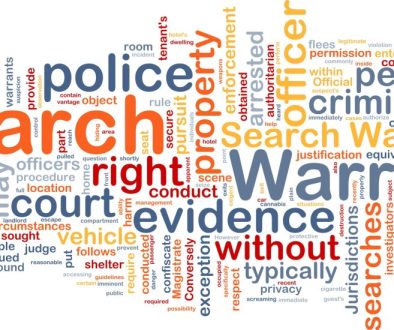MOTION TO SUPPRESS DENIED – WHAT HAPPENED?
I’ve written previously that our firm doesn’t just discuss its successes, but also its defeats. Last week while we successfully argued one Motion to Suppress drugs and guns in Philadelphia, we weren’t successful in another case. It’s important to understand that we don’t win all of our cases and any attorney who presents this image of constant success simply isn’t being truthful. Obviously, we don’t want to lose cases but we always attempt to learn something from the losses. This is the sign of a true professional!
 The Importance of Attorney Honesty
The Importance of Attorney Honesty
While our firm has had a lot of success in the areas of drunk driving (DUI/DWI), illegal narcotics, guns, and firearms, we, like any successful criminal defense firm, lose cases. Recently we were not able to successfully suppress an illegal gun in a case that we are currently handling in Philadelphia for a client who we have represented in the past. Our strategy in this case was to focus on the illegality of the stop as opposed to the arrest of our client. As I’ve written previously, there are 3 categories of police stop: mere encounter, investigative detention, and custodial interrogation/arrest. The level of interaction between police and the suspect will dictate a person’s expectation of privacy and the attached constitutional protections which go with it.
Case Background
In this case, our client was with a group of his friends on a city street in Philadelphia when bike police officers approached him and the group. Upon that approach, our client began walking away and eventually running, which caused police to chase him down a city street. During that chase, our client allegedly threw a gun, which the police later recovered. Looking at this case, it may appear that our strategy should have focused on the point in which our client began running or the point at which he threw the weapon.
Criminal Defense Case Strategy –Reasonable Suspicion for the Stop
While we weren’t successful, it’s important to realize that our argument needed to be focused on the initial stop by police. The act of running and throwing the weapon provided police with reasonable suspicion to stop our client and probably cause to arrest him.
Our client is a convicted felon who is neither able to possess a firearm nor carry it on a city street in Philadelphia. Our client, therefore, due to the mere possession of the weapon itself was in violation of the Uniform Firearms Act, VUFA Section 6105 (illegal possession by a prohibited person), 6106 (carrying without a license), and 6108 (carrying on the street without a license).
Our strategy needed to focus on police’s basis for the stop because they can’t simply stop someone without reasonable suspicion.
Why Our Strategy Didn’t Work
While our client told us that police approached and attempted to stop him for no reason whatsoever, police, during the Motion to Suppress, testified that the butt of a firearm was sticking out of our client’s waistband. This provided police reasonable suspicion to approach and try to stop him. This case may have turned out differently had our client better concealed the weapon on his person, but an exposed butt handle provides police reasonable suspicion for the stop. Remember, reasonable suspicion is a lower form of probable cause. Probably cause is the reasonable belief that criminal activity is occurring.
Without reasonable suspicion, the stop is illegal, and so anything after that stop is inadmissible because of what is known as the “fruit of the poisonous tree” doctrine. This basically says that anything found or recovered after an illegal stop can’t be used against someone in a criminal prosecution. This is a universal rule of criminal defense and applies not only in Pennsylvania but also in states like New Jersey, and at the federal level.
There is Still Hope! The Burden of Proof At Trial
While our Motion to Suppress evidence was not successful in this case, our firm still has some strong arguments at trial because the prosecution must prove beyond a reasonable doubt that our client either actually or constructively possessed the handgun. In this case, they may have some trouble because police only allegedly saw our client, from a considerable distance at night, throw a weapon. This is an example of poor direct evidence. The evidentiary burden of proof at a criminal trial is much higher than the “by the preponderance of the evidence” standard at a motion to suppress evidence. For more great information, please visit our free download section
Contact Our Criminal Defense Lawyers in PA & NJ
Please click here to contact our Philadelphia criminal defense lawyers. We offer free case reviews and serve the following areas in Pennsylvania and New Jersey, Atlantic City, Camden, Cherry Hill, Chester, Conshohocken, Doylestown, Media, Norristown, Philadelphi



